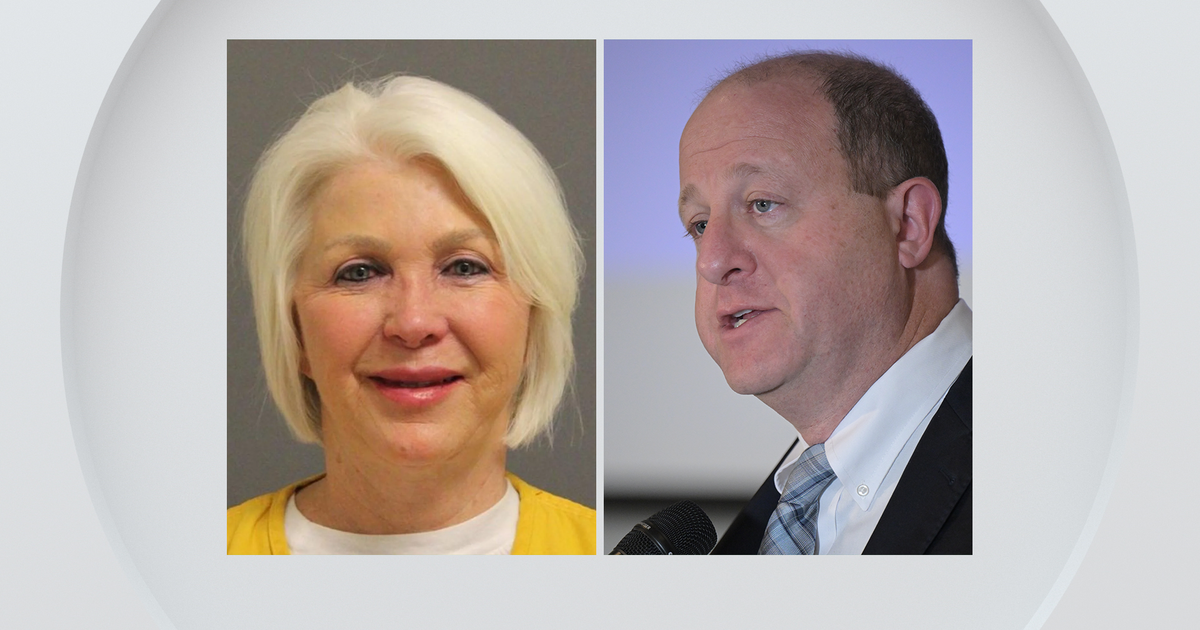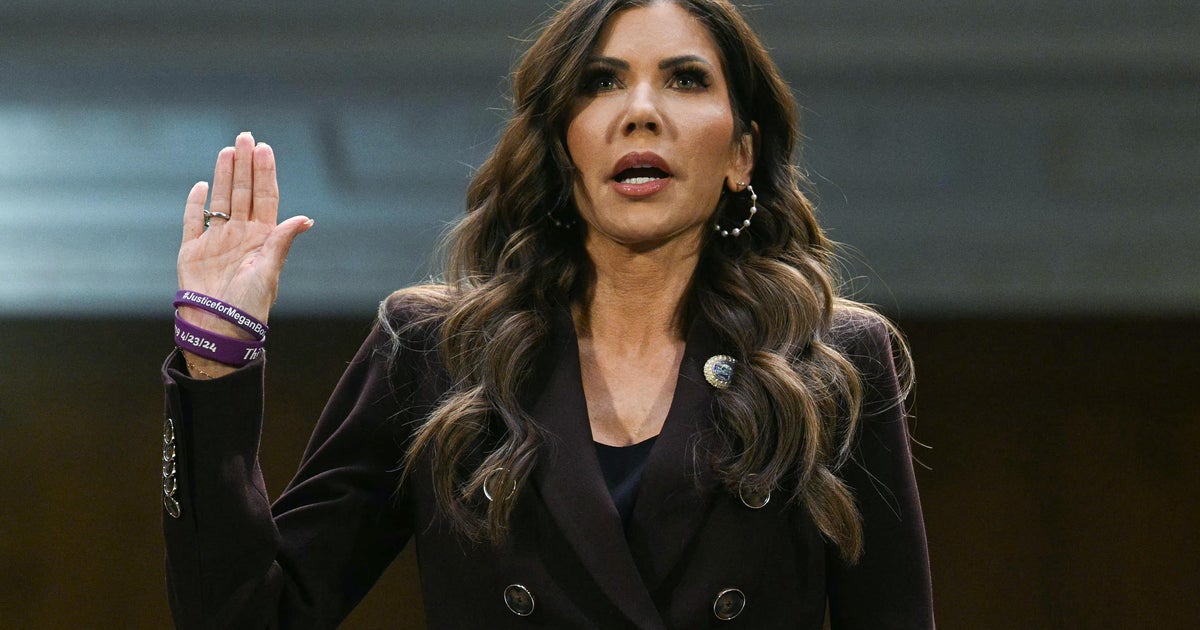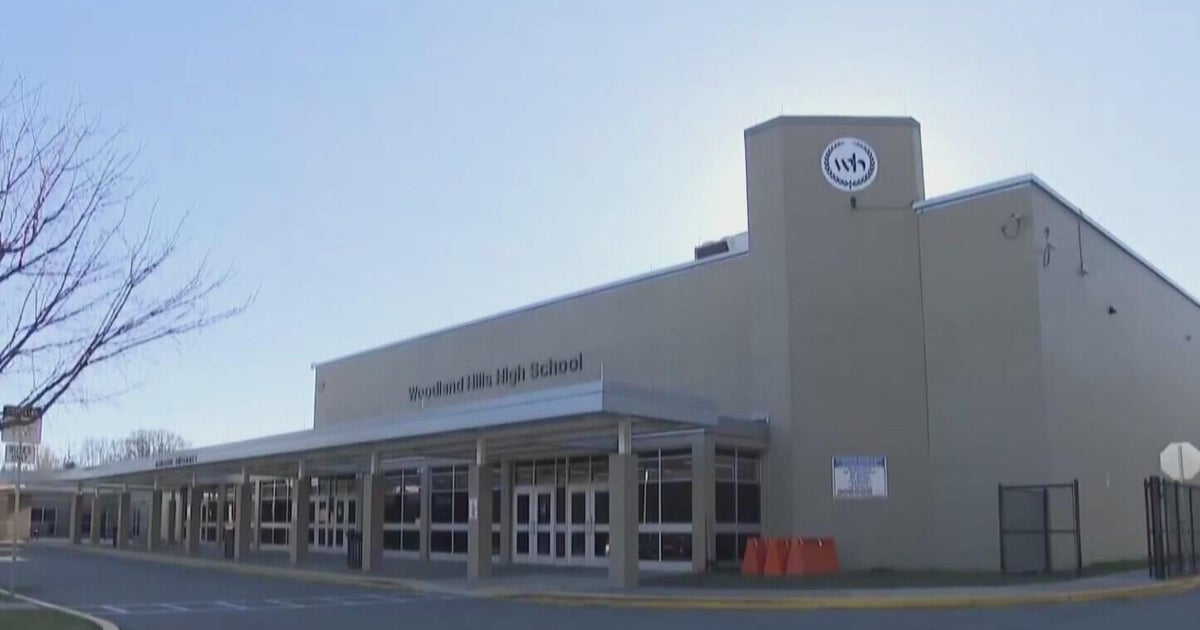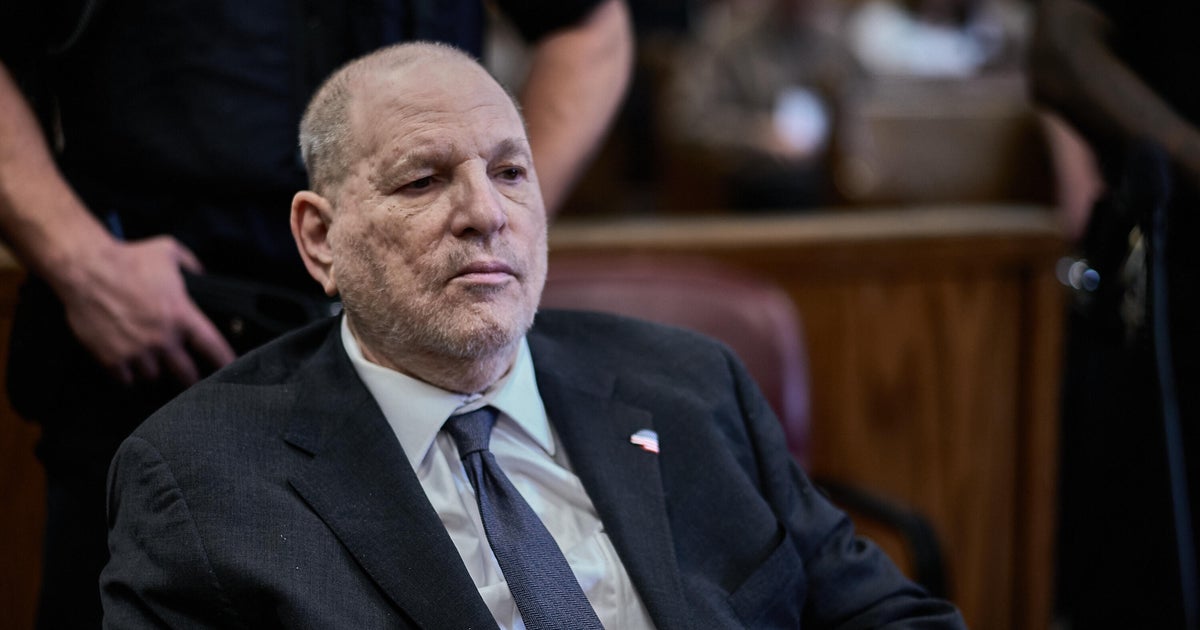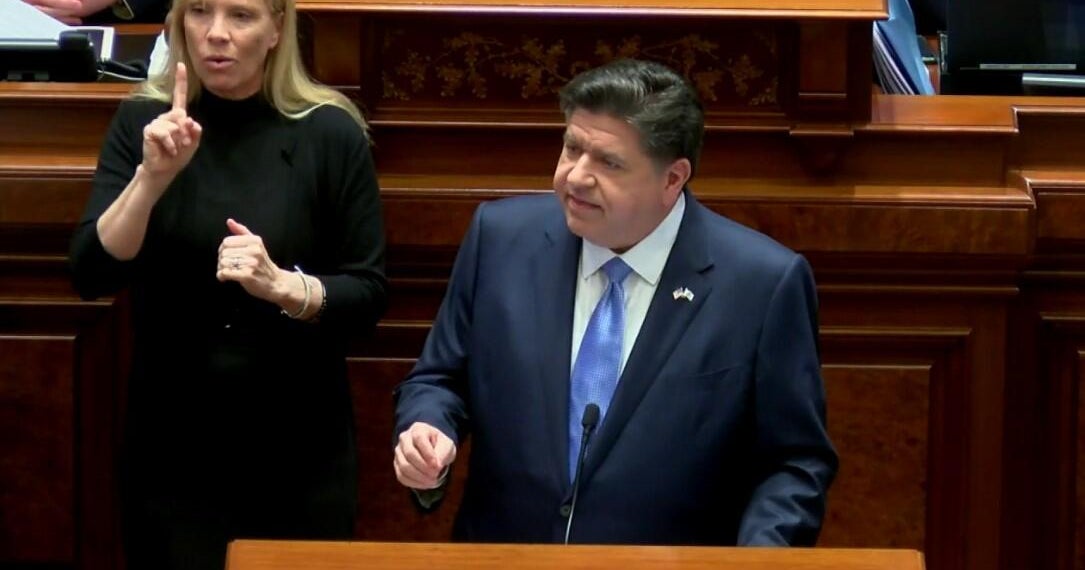Latest: High Drama In Kavanaugh-Ford Showdown
3:33 p.m.
Kavanaugh's denial came after a "terrified" Ford described in graphic detail how she says Kavanaugh sexually assaulted her at a party when the two were teenagers. She told senators her strongest memory of the night is Kavanaugh and his friend's laughter as they were "having fun at my expense."
Ford relived the night of a party when she was 15 and Kavanaugh was 17, telling senators she "believed he was going to rape me."
The hearing featured jarring, rapid jumps between Ford's memory being tested by Rachel Mitchell, the Arizona sex crimes prosecutor who Republican senators hired to ask questions on their behalf, and Democrats whose questions were designed to establish that Ford is certain it was Kavanaugh -- not somebody else -- who assaulted her.
When California Democratic Sen. Dianne Feinstein asked if there is any chance she has mistakenly identified Kavanaugh, Ford said "absolutely not."
"Very much so," she told Sen. Patrick Leahy, D-Vermont, of her certainty it was Kavanaugh.
"100%" she told Sen. Dick Durbin, D-Illinois.
Inside the hearing, Mitchell was a shield for the committee's 11 male Republican members, putting a female face on the detailed questions seeking inconsistencies in Ford's account.
But outside the hearing, some Republicans who had handed off their opportunity to question Ford cast doubt on her testimony.
Sen. Lindsey Graham, R-South Carolina, said it is "very suspicious of how this all came out. All the media contacts, hiring a lawyer to take a polygraph makes it even more suspicious. This was meant to be anonymous."
Sen. Orrin Hatch, R-Utah, told a reporter it was "it's too early to say" if Ford is credible.
"I don't think she's uncredible. I think she an attractive, good witness," he said. Asked what he meant, the senator said, "In other words, she's pleasing."
2:00 p.m.
Ford began the hearing by describing the night she says Kavanaugh sexually assaulted her, when the two were at a house party in Maryland. She said she was pushed into a bedroom where Kavanaugh "began running his hands over my body and grinding into me."
In the room, with Kavanaugh and his friend Mark Judge, she said, a drunk Kavanaugh "groped me and tried to take off my clothes."
"I believed he was going to rape me. I tried to yell for help. When I did, Brett put his hand over my mouth to stop me from yelling," she said. "This is what terrified me the most and had the most lasting impact on my life. It was hard for me to breathe, and I thought that Brett was accidentally going to kill me."
She also said she didn't tell her parents what had happened immediately because she didn't want to reveal that she was at a house party where alcohol was present and because Kavanaugh hadn't raped her. She said she described the specific details for the first time in a May 2012 couples' counseling session.
Ford told the committee that what happened with Kavanaugh has "haunted me episodically as an adult."
Until July 2018, Ford said, she had never named Kavanaugh as her attacker outside of therapy. She said seeing Kavanaugh's name on the short list of candidates for a Supreme Court appointment made her feel it was her "civic duty" to share what had happened.
"It was an extremely hard thing to do, but I felt that I couldn't not do it," she said.
She told the committee that she is "here today not because I want to be. I am terrified. I am here because I believe it is my civic duty to tell you what happened to me while Brett Kavanaugh and I were in high school."
Kavanaugh will later attempt to convince majority Republicans on the committee to confirm him despite Ford's allegations -- and as other accusations of sexual misconduct emerge from Kavanaugh's youth.
9:55 a.m.
The Senate Judiciary Committee braced for a history-making clash as Brett Kavanaugh and one of his accusers awaited their chance to testify Thursday about her claim that the Supreme Court nominee sexually attacked her when both were teenagers.
Click here to watch the hearing LIVE.
The embattled appeals court judge emphatically rejected that allegation from Christine Blasey Ford as well as accusations from other women as Republican leaders struggled to keep support for his elevation to the high court from eroding.
Click here to read Christine Blasey's prepared testimony.
Click here to read Brett Kavanaugh's prepared testimony.
RELATED: Read: 1982 Calendar Entries From Brett Kavanaugh
The committee of 11 Republicans, all men, and 10 Democrats was to hear from just two witnesses on Thursday: Kavanaugh, a federal appeals court judge who has long been eyed for the Supreme Court, and Christine Blasey Ford, a California psychology professor who accuses him of attempting to rape her when they were teens.
Early Thursday, all was eerily quiet outside the hearing room in the Dirksen Senate Office Building, across the street from the Capitol. Photographers and a contingent of Capitol Hill Police officers waited in the hallway, and access to corridors near the room was restricted. There were no signs of the modest number of public spectators who will be allowed inside.
Republicans have derided Ford's allegation as part of a smear campaign and a Democratic plot to sink Kavanaugh's nomination. But after more allegations have emerged, some GOP senators have allowed that much is riding on Kavanaugh's performance. Even President Donald Trump, who nominated Kavanaugh and fiercely defends him, said he was "open to changing my mind."
"I want to watch, I want to see," he said at a news conference Wednesday in New York.
Kavanaugh has repeatedly denied all the allegations, saying he'd never heard of the latest accuser and calling her accusations "ridiculous and from the Twilight Zone."
RELATED: President Trump Blasts Kavanaugh Accuser: 'She Admits She Was Drunk'
The conservative jurist's teetering grasp on winning confirmation was evident when Sen. Susan Collins, R-Maine, expressed concern, in a private meeting with senators Wednesday, about the third accuser, according to a person with knowledge of the gathering. Republicans control the Senate 51-49 and can lose only one vote for Kavanaugh to prevail if all Democrats vote "no." Collins is among the few senators who've not made clear how they'd vote.
Collins walked into that meeting carrying a copy of Julie Swetnick's signed declaration, which included new accusations of sexual misconduct against Kavanaugh and his high school friend Mark Judge.
Collins said senators should hear from Judge. After being told Judge has said he doesn't want to appear before the committee, Collins reminded her colleagues that the Senate has subpoena power, according to a person who was not authorized to discuss the matter publicly and spoke on condition of anonymity.
The hearing was to be the first time the country sees and hears from the 51-year-old Ford beyond the grainy photo that has been flashed on television in the 10 days since she came forward with her contention. In testimony released beforehand, she said she was appearing only because she felt it was her duty, was frankly "terrified" and has been the target of vile harassment and even death threats.
"It is not my responsibility to determine whether Mr. Kavanaugh deserves to sit on the Supreme Court," she was to tell the senators. "My responsibility is to tell the truth."
Republicans are pushing to seat Kavanaugh before the November midterms, when Senate control could fall to the Democrats and a replacement Trump nominee could have even greater difficulty. Kavanaugh's ascendance to the high court could help lock in a conservative majority for a generation, shaping dozens of rulings on abortion, regulation, the environment and more.
Republicans also risk rejection by female voters in November if they are seen as not fully respecting women and their allegations.
In a sworn statement, Swetnick said she witnessed Kavanaugh "consistently engage in excessive drinking and inappropriate contact of a sexual nature with women in the early 1980s." Her attorney, Michael Avenatti, who also represents a porn actress who is suing Trump, provided her sworn declaration to the Judiciary panel.
Meanwhile, the lawyer for Deborah Ramirez, who says Kavanaugh exposed himself to her at a party when they attended Yale University, raised her profile in a round of television interviews.
Republicans largely expressed confidence in Kavanaugh, emerging from a closed-door lunch with Vice President Mike Pence Wednesday to say the nominee remained on track for confirmation.
Senate Majority Leader Mitch McConnell, R-Ky., has said all week that Republicans will turn to a committee vote on Kavanaugh after the hearing. They hope for a roll call by the full Senate early next week with the aim of getting him on the court as its new term begins.
Collins' unease was not the only suggestions of creeping doubt among Republicans. Asked whether there were signs of Republicans wavering in their support of Kavanaugh in their lunch, Sen. John Thune, the third-ranking Republican, paused briefly before saying "no."
In the hearing, Democrats planned to ask Kavanaugh if he'd be willing to undergo FBI questioning about the various claims — a request Republicans oppose — and press him about his drinking and behavior as a teenager.
Questions for Ford were expected to be aimed at giving her a chance to explain herself.
Republicans have hired an outside attorney, Phoenix prosecutor Rachel Mitchell, to handle much of their questioning. Thus, they will avoid having their all-male contingent interrogating Ford about the details of what she describes as a harrowing assault.
Democratic questioners will include two senators widely seen as potential presidential candidates in 2020: Kamala Harris of California and Cory Booker of New Jersey, who aggressively challenged Kavanaugh during the judge's earlier confirmation hearing.
Ford planned to tell the committee that, one night in the summer of 1982, a drunken Kavanaugh forced her down on a bed, "groped me and tried to take off my clothes," then clamped his hand over her mouth when she tried to scream before she was able to escape.
"I believed he was going to rape me," she will say, according to her prepared testimony.
Kavanaugh is being challenged on multiple fronts by his accusers, former classmates and college friends. They say the good-guy image he projects in public bears little relation to the hard-partying behavior they witnessed when he was young.
In his prepared testimony, the 53-year-old appellate judge acknowledges drinking in high school with his friends, but says he's never done anything "remotely resembling" what Ford describes. He said he has never had a "sexual or physical encounter of any kind" with her.
He also provided the committee with detailed calendar pages listing in green-and-white squares the activities that filled his summer of 1982 when he was 17 years old — exams, movies, sports and plenty of parties. That's the year when Ford says she believes the assault occurred.
Nothing on the calendar appears to refer to her.
Ford released sworn statements from people who said she had told them about the assault in later years.
Late Wednesday, the committee released a flurry of other documents of unclear significance.
Transcripts of private interviews with committee investigators show they asked Kavanaugh about two previously undisclosed accusations received by Senate offices. One came in an anonymous letter sent to the office of Sen. Cory Gardner, R-Colo., describing an incident in a bar in 1998, when Kavanaugh was working for the independent counsel investigating President Bill Clinton. The other accused Kavanaugh of sexual misconduct in college. Kavanaugh denied them both.
The committee also released a summary of its work that noted its staff had spoken to two different men who believe they "had the encounter" with Ford, rather than Kavanaugh. The committee notes do not detail what came of those conversations.
Activity on Capitol Hill is likely to grind to a halt during the proceedings, with lawmakers glued to their televisions during what is widely seen as a sequel to the
politically explosive hearings of 1991 with Anita Hill, who accused now-Justice Clarence Thomas of sexual harassment. Thomas denied Hill's accusation.
© 2018 Associated Press. All Rights Reserved. This material may not be published, broadcast, rewritten, or redistributed.

